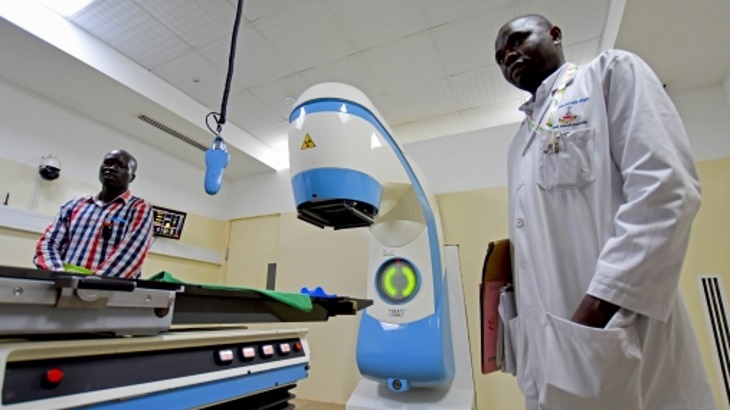The country's sole functioning radiotherapy machine, which was housed by the Uganda Cancer Institute (UCI), broke down in early 2016. UCI receives more than 5000 new cancer patients each year.
In addition to supporting the procurement of one new cobalt-60 machine and the commissioning of a second, which was donated by the government of India, the IAEA has procured specific equipment to allow the introduction of a brachytherapy service for patients with oesophageal cancer and, additionally, organised nine fellowships to help to develop the human resources essential to operate and maintain the new equipment properly.
Ignatius Komakech, an alumnus of the TC Fellowship programme, said the opportunity had "truly redefined my perceptions and the goals I had" in cancer care and management.
The large-scale expansion of the UCI, and the corresponding expansion of available services, means that training for more personnel to treat the thousands of patients each year is urgently needed. The newly launched project responds to this need, the IAEA said, by supporting capacity building for new staff. The project will also support the introduction of new equipment - including commissioning of the linear accelerator, CT-Simulator and 3D treatment planning system - as well as the provision of retraining opportunities for existing personnel.







_15863.jpg)







